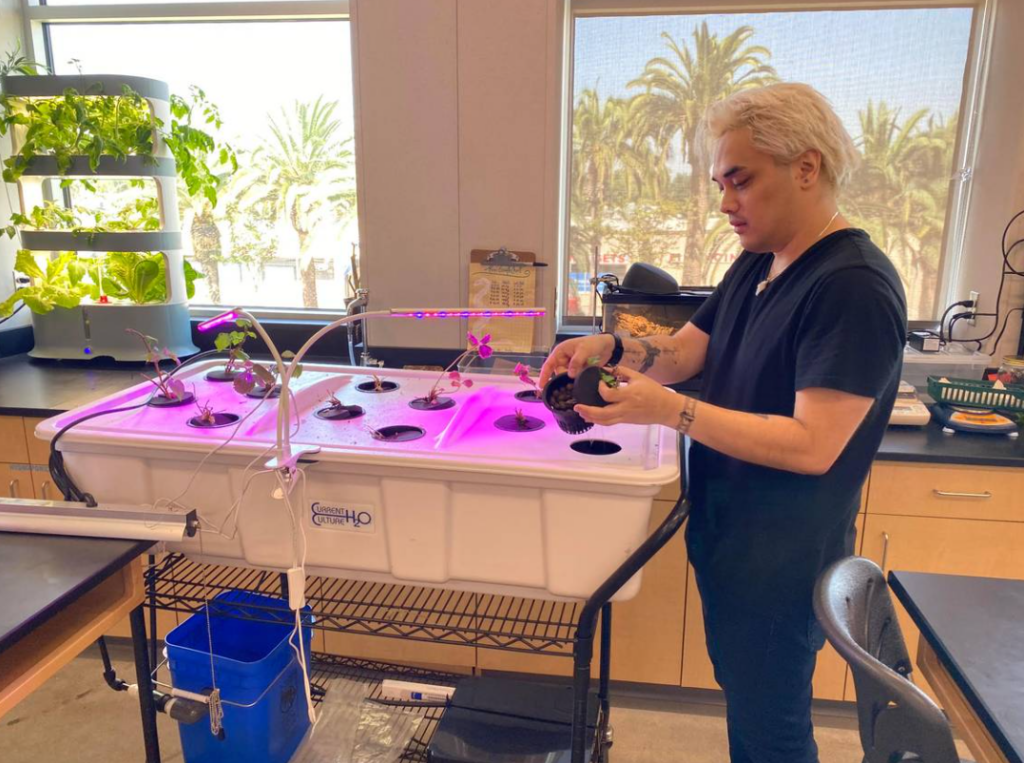OPINION: Instead of panicking over test scores, let’s rethink how we measure learning and student success
Last week’s reaction to the dismal scores on the nation’s report card, also known as NAEP, was familiar: panic and calls for reform. Here’s an alternative response: Just say nope to NAEP. For decades, education policy has lurched from one test score panic to the next, diverting resources from what we know matters — building […] The post OPINION: Instead of panicking over test scores, let’s rethink how we measure learning and student success appeared first on The Hechinger Report.


Last week’s reaction to the dismal scores on the nation’s report card, also known as NAEP, was familiar: panic and calls for reform. Here’s an alternative response: Just say nope to NAEP.
For decades, education policy has lurched from one test score panic to the next, diverting resources from what we know matters — building students’ socioemotional skills, fostering strong relationships with teachers and peers and supporting enriched home environments that drive long-term success. Rather than obsessing over fluctuating scores, we should focus on unlocking the full potential of our students.
And yet, we continue to pour resources and effort into standardized testing. Each year, America spends roughly $2 billion on standardized achievement tests at the national and state levels. Millions of hours of school time are consumed, and students, educators and parents face waves of stress and anxiety. From this level of investment, we might expect meaningful insights and higher returns — but standardized tests often conceal more than they reveal.
Research in economics and psychology shows that these tests fail to measure key traits like perseverance, motivation and conscientiousness — qualities that strongly predict long-term success. Meanwhile, factors like ninth grade GPA and attendance may be better predictors of high school graduation rates than any standardized test.
Related: Become a lifelong learner. Subscribe to our free weekly newsletter to receive our comprehensive reporting directly in your inbox.
As students get older, they grow disillusioned with testing. (Ask one!) One study found that while 62 percent of seventh graders said doing well on a mandated achievement test was important, only 10 percent of 10th graders agreed. Declining motivation about testing isn’t just apathy — it’s skepticism and burnout.
Students are often treated as passive test-takers rather than active participants in learning. In a system in which they lack agency and voice, how can they be expected to productively respond to demoralizing headlines about the “lowest scores in decades”?
Beyond financial costs and declining motivation, standardized testing also leads to other negative consequences. In the pursuit of higher scores, many schools have cut recess to increase instructional time, contributing to rising obesity rates and behavioral challenges. Subjects not covered by standardized tests — such as music, art and dance, which promote learning and creativity — are often marginalized or eliminated entirely.
And yet, current education policy treats test scores as both the problem and the solution, using them to justify top-down curriculum reforms that crowd out curiosity, engagement and socioemotional development. This focus on standardized testing reduces education to a technocratic exercise, overlooking the complexity of how students truly learn and grow.
The obsession reflects a broader issue in education research itself. Typical education research methods fail to ask critical questions: How do peer relationships shape learning? What role do families play? Can schools compensate for gaps in home environments? Our scientific approach to program evaluation goes beyond asking whether a program’s curriculum “works” to understanding how and why it works. Effective teaching isn’t about fidelity to a rigid curriculum — it’s about fostering connection and allowing curiosity.
Related: A dismal report card in math and reading
This isn’t about rejecting NAEP or standardized testing entirely. Tests aren’t without any utility. Administering meaningful assessments can spotlight schools and districts that are struggling so that we can allocate resources and attention where they’re most needed. And while standardized tests are narrow and often prompt low student motivation, they may be valuable for tracking large-scale trends — such as monitoring recovery from the Covid-19 pandemic. However, the current overreliance on tests is costly in many ways and is not an effective strategy for improving education as a whole.
Consider literacy reform: Despite years of declining NAEP scores and efforts to boost them, real action came only after APM Reports’ “Sold a Story” podcast exposed flawed reading curricula and teaching strategies. The series gave literal voice to student and teacher experiences, galvanizing parents and policymakers. Since the podcast aired, 25 states have passed phonics-based reading laws. But the lesson here isn’t about banning one curriculum or mandating another. It’s that we must think less rigidly and invest in how children learn, how to motivate them and how to create positive classroom experiences for students and educators alike.
We need to break the cycle of reactionary policy and rethink how we assess student success. It’s worth seriously considering pausing some of these tests and redirecting resources to shape assessments that incorporate student and educator perspectives and align with the latest science on learning. If we ask better questions, we’ll get better answers, and ultimately better learning.
Alison Baulos is the executive director of the Center for the Economics of Human Development. James Heckman is a Nobel laureate and the Henry Schultz Distinguished Service Professor in Economics at the University of Chicago. Together, they study the long-term impacts of education and family policies on human development.
Contact the opinion editor at opinion@hechingerreport.org.
This story about student test scores was produced by The Hechinger Report, a nonprofit, independent news organization focused on inequality and innovation in education. Sign up for Hechinger’s weekly newsletter.
read more
The post OPINION: Instead of panicking over test scores, let’s rethink how we measure learning and student success appeared first on The Hechinger Report.


















































































